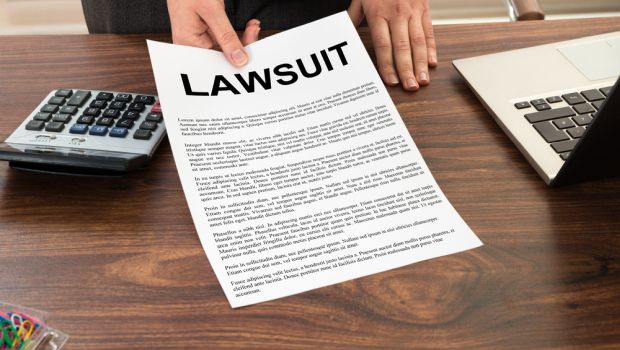Avoiding a wrongful sale is sidestepping the most dangerous litigation possible to your self-storage business. Follow these 10 guidelines to keep from being sued.
July 11, 2017

Consider this story: An elderly woman comes to your self-storage facility to rent a unit. She tells the manager she’s putting everything she owns into storage. She explains that she’s traveling to the Middle East to serve in the United Service Organizations as a volunteer. A small tear forms on her cheek as she tells you a story about how her husband was a brave, lifelong marine who recently died from heart failure. Her oldest son was killed in Iraq, and her youngest son is serving in Afghanistan. She believes the best way to honor her husband, sons and country is to "stop sitting around doing nothing and start to serve."
As a result, she needs a good place to put her entire life. She’s moved out of her townhouse and expects to be gone for one to two years. She tells the manager this because she wants to be clear that even though she’s putting a home address and telephone number on the contract, she won't be living there or be able to receive any calls or e-mails abroad. The manager assures her that since she’s placing her payment on auto-pay, there will likely be no reason to contact her anyway (barring a flood or other disaster).
The woman completes the rental lease, fills out the credit card auto-pay form and loads her life into the storage unit. Some items of interest include her husband's military awards, children's birth certificates, wedding dress and other clothes, family photos, furniture, jewelry, the family Bible, and kids’ trophies, awards and artwork. Then, off she goes to serve our great country.
Fast forward four months. Somehow, the woman’s unit has gone into delinquent status. It’s later discovered (much too late) that the auto-pay form listed the wrong unit number, and all her payments were being applied to the wrong space. The renter of that unit had ceased making his own payments; but with the woman’s money being applied to his rent, no one noticed.
The current staff is unaware of the conversation the woman had with the previous manager, who has since left the company and failed to include any notes in the tenant’s file. So, they begin sending delinquency notices—notices that never reach their target.
Ultimately, an auction is scheduled and the unit is sold. For the next seven months, the woman’s credit card is dutifully charged each month, and she’s unaware of the fate of her belongings. Then, she gets an unexpected call from the president of the United States, which brings her home early to accept the Presidential Medal of Freedom for her service to our country. While stateside, she decides to gather a few more clothes from her unit and discovers everything has been sold.
The saddest thing about this "story" it contains the true facts of a case I defended years ago. What a nightmare! Although this perfect storm might not happen to you, versions of it can and do occur. Avoiding a wrongful sale is sidestepping the most dangerous litigation your self-storage business might face. To keep your company out of a courtroom, follow these 10 guidelines.
1. Understand the Severity of a Sale
When we know our business and work in it daily, we become numb to how it’s viewed from the outside. You see it in doctors who are insensitive about delivering bad news because they do it every day. You see it in accountants who are rude about how sloppy you were with your bookkeeping. We all do it.
Never lose sight of the fact that when you’re conducting an auction, you’re forever discarding the personal possessions of another. A small glass bird that looks cheap and ugly may be the only item left from a great-grandfather who fought in World War II. We all know how important photographs can be. The point is, don't consider the auction of a unit as "no big deal." Care about the fact that you must go this far and make sure you’re doing it correctly.
2. Get Alternative Contact Information
Most states don’t require storage operators to contact the alternative contact person listed on a self-storage lease. However, imagine you’re now in front of a jury and the plaintiff's lawyer asks your representative, "So, let me get this straight. You require a tenant to list an alternative contact, but then you don't even bother to try to contact that person before you sell the tenant’s personal belongings?" A jury won’t be happy with that scenario. The lesson here is, if you have alternative contact information, use it! Then document the fact that you tried.
3. Offer a Grace Period
Sometimes we get so hung up on the technicality that the tenant is behind in rent that we forget to look a little closer to make sure there isn't something unusual—like an automatic pay slip filled out for the wrong unit. Don't knee-jerk to the auction solution. Show a little grace and double-check the circumstances of that tenant.
4. But Keep It Limited
On the other hand, expect that sometimes "no good deed goes unpunished." If you’ve been allowing your tenant to pay late, make a partial payment, pay a payment plan or any other situation that’s different than the terms of the lease, and it has been going on for a while, watch out. You can’t one day decide you’re "fed up" and hold him to the strict terms of the lease for auction purposes.
Many states have court decisions that say if a tenant has been allowed to pay under alternative terms for a certain period of time, you may have effectively modified the lease. So be gracious, just not too gracious.
5. Is the Tenant Deceased?
This is a question you should likely ask in some situations. If you have a tenant from 1990 that has never missed a payment and suddenly the payments stop, go the extra mile and see if something has happened. I’ve had this situation come up every year, and the tenant ends up being deceased. What do you do in that case? That’s a different article, but don't auction the unit. Instead, check with your counsel about how to handle this type of situation.
6. Get a Signed Lease
Make sure you have one. It seems simple, but sometimes it’s a step that isn’t double-checked. Your lease should include the monthly rental amount, payment due date and any late fees that might be assessed.
7. Create an Auction Checklist
Most states require you to send a notice of the sale to the tenant’s last-known address. That notice typically has specific requirements regarding language, stating the amount due and that an auction is coming on a certain date. Have a form with blanks that states each requirement you must follow before selling someone’s most treasured possessions. As you follow each requirement, initial the blank and date it. Keep a copy of this checklist in your file.
8. Keep Copies of Everything
This includes copies of the notice letter, the publication, the checklist mentioned above, your inventory of the unit and anything else your state requires. Place them all in the tenant’s file.
9. Don’t Cut Corners
This is where we really get into trouble. Some states, even some municipalities, require the auction be conducted by a licensed auctioneer. Don't cut that corner. Some states don’t allow online auctions. Don't cut that corner. Some states require the tenant be informed in writing of the actual date of the auction. If the date in the letter is wrong, even if the letter is returned, send out a new one and start over. Just make sure you do every step perfectly.
10. Have a Witness
To the extent you can afford it, have a witness present when you cut the lock, inventory the unit and conduct the auction. Write that witness’ name on some document that goes into the tenant’s file. Two witnesses confirming a story makes it hard to challenge—even the Bible requires it!
Wrongful-sale suits in many states allow for the recovery of various damages beyond the value of the goods, including attorneys' fees, mental-anguish damages, treble damages and more. If you do everything right, your chances of success in a lawsuit are far greater. As an operator of a facility that’s trusted for storing property, you have a duty to get it right.
Murphy Klasing, an attorney with the law office of Weycer, Kaplan, Pulaski & Zuber P.C., has a wide range of appellate, arbitration and trial experience, successfully handling numerous litigation matters. With more than a decade of experience in the self-storage industry, he serves as counsel for Public Storage Inc. in Texas, and has defended matters involving allegations of breach of contract, code violations, employment issues, fraud, negligence, personal injury, premises liability, and theft. To reach him, call 713.961.9045; e-mail [email protected]; visit www.wkpz.com.
About the Author(s)
You May Also Like





